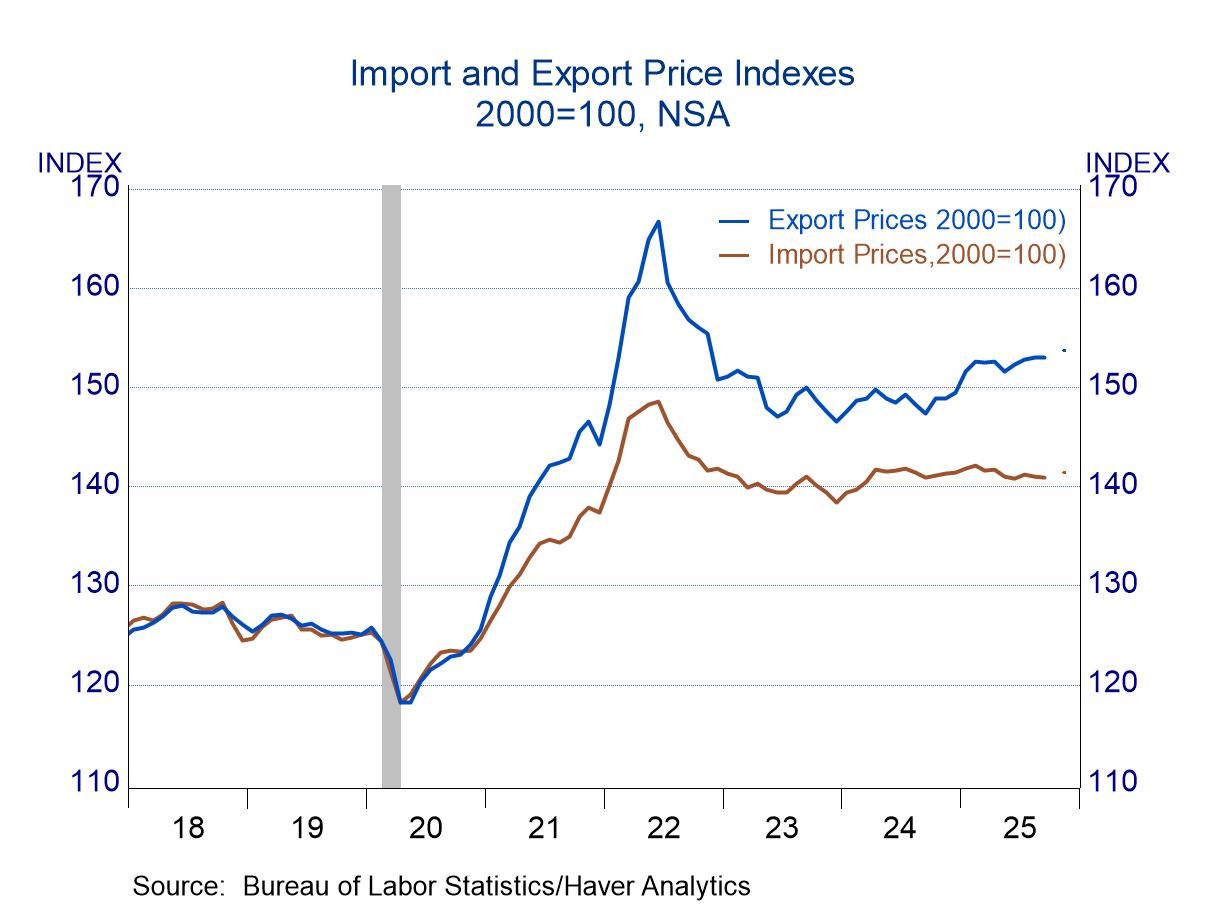U.S. ADP Employment Declines Unexpectedly in September
by:Tom Moeller
|in:Economy in Brief
Summary
- Drop in private payroll jobs is third in last four months.
- Service-sector jobs decline sharply; construction & factory hiring weakens.
- Job-changer wage growth moderates.
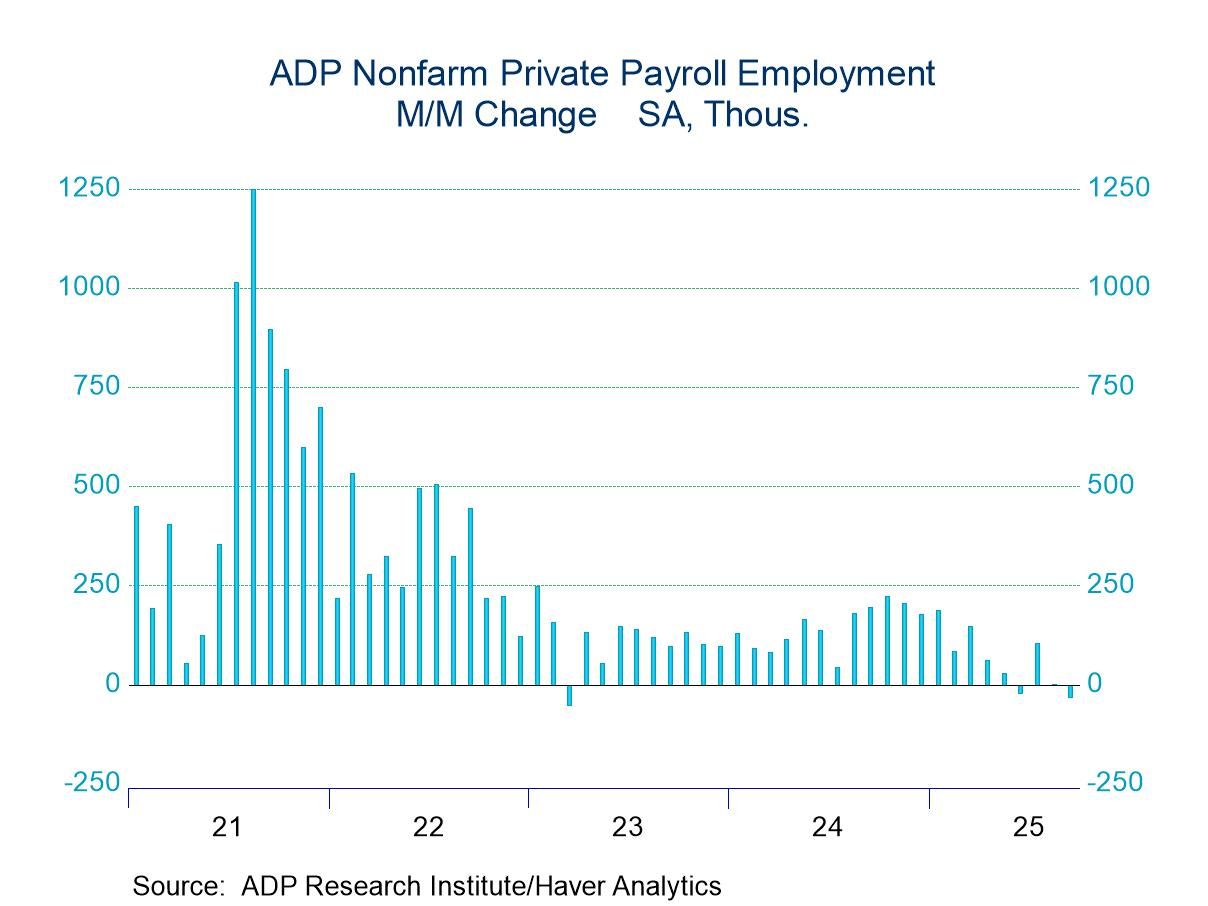
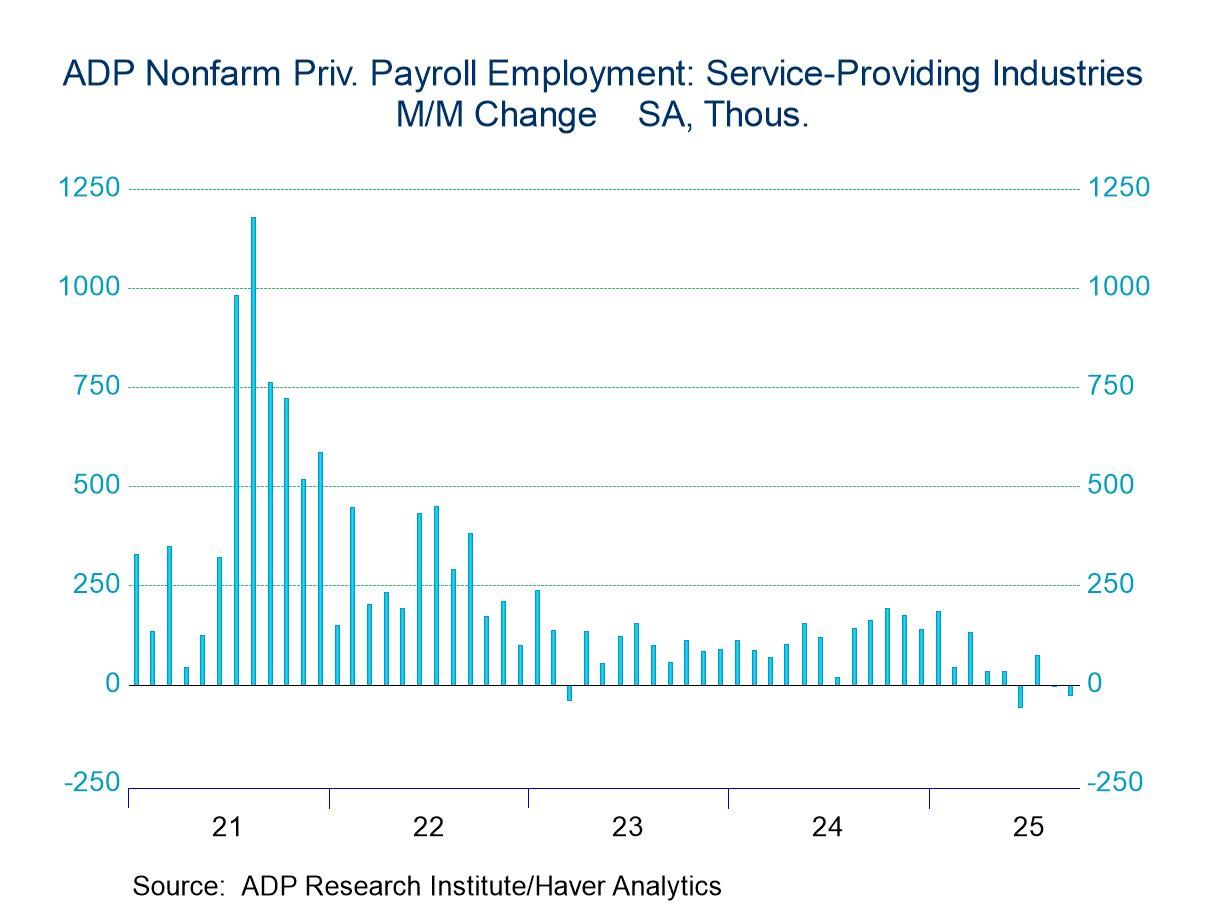
The ADP National Employment Report indicated that nonfarm private sector payrolls fell last month by 32,000 (+0.9% y/y) after weakening 3,000 in August, revised from a 54,000 increase, and strengthening 104,000 in July, revised from 106,000. The latest decline was the third, and largest, since March 2023. The Action Economic Forecast Survey expected a 50,000 increase in September.
Small business hiring (less than 50 employees) fell 40,000 (+0.2% y/y) after declining 44,000 in August, revised from a 12,000 gain. Employment at medium-sized firms (50-499 employees) weakened 20,000 (+0.9% y/y) after easing 1,000 in August, revised from a 25,000 increase. Large business hiring (500+ employees) gained 33,000 (2.3% y/y) following a 46,000 August rise, revised from 18,000.
Service-producing jobs decreased 28,000 (+0.8% y/y) during September after falling 5,000 in August, revised from a 42,000 gain. Changes amongst industry sectors were mixed. Working lower, leisure & hospitality employment declined 19,000 (+2.18% y/y) after increasing 10,000 in August, revised from 50,000. Professional & business jobs fell 13,000 (+0.3% y/y) following a 1,000 decline, revised from +15,000. Trade, transportation & utilities employment declined 7,000 (+0.2% y/y) after falling an unrevised 17,000. Financial activities employment weakened 9,000 (+2.0% y/y) following an 8,000 increase in August, revised from a 2,000 slip. Offsetting these declines, education & health services posted a 33,000 increase (0.3% y/y) after increasing 18,000 in August, revised from -12,000. Information sector employment rose 3,000 (0.5% y/y) after falling 13,000 in August, revised from +7,000.
Goods-producing employment weakened in September by 3,000 (+1.1% y/y) following a 2,000 increase, revised from 13,000. Construction jobs declined 5,000 (+2.0% y/y) after increasing 10,000, revised from 16,000. Manufacturing jobs dropped 2,000 (+0.1% y/y) following an 18,000 August decline, revised from down 7,000. Natural resources and mining jobs rose 4,000 (3.5% y/y) after gaining 10,000 in August, revised from 4,000.
By region, in the Northeast the number of jobs rose 21,000 (1.1% y/y) in September following a 1,000 improvement. In the Midwest, employment declined 63,000 (+0.9% y/y) after falling 21,000 in August. In the West, jobs rose 15,000 (0.7% y/y) following an 11,000 decline, and in the South, employment rose 3,000 (0.8% y/y) following a 29,000 August strengthening.
Wage growth for job-changers in September weakened to 6.6% y/y from 7.1% in August, well below a high of 16.1% in April 2022. Wage growth for job-stayers continued moderate last month, as year/year growth of median annual pay of 4.5% y/y was little changed from 4.4% in August, the slowest increase since June 2021. The slowdown in wage growth was widespread across major industries.
The ADP National Employment Report and Pay Insights data can be found in Haver's USECON database. Historical figures date back to January 2010 for private employment. Pay data date back to October 2020. The expectation figure is available in Haver's AS1REPNA database.
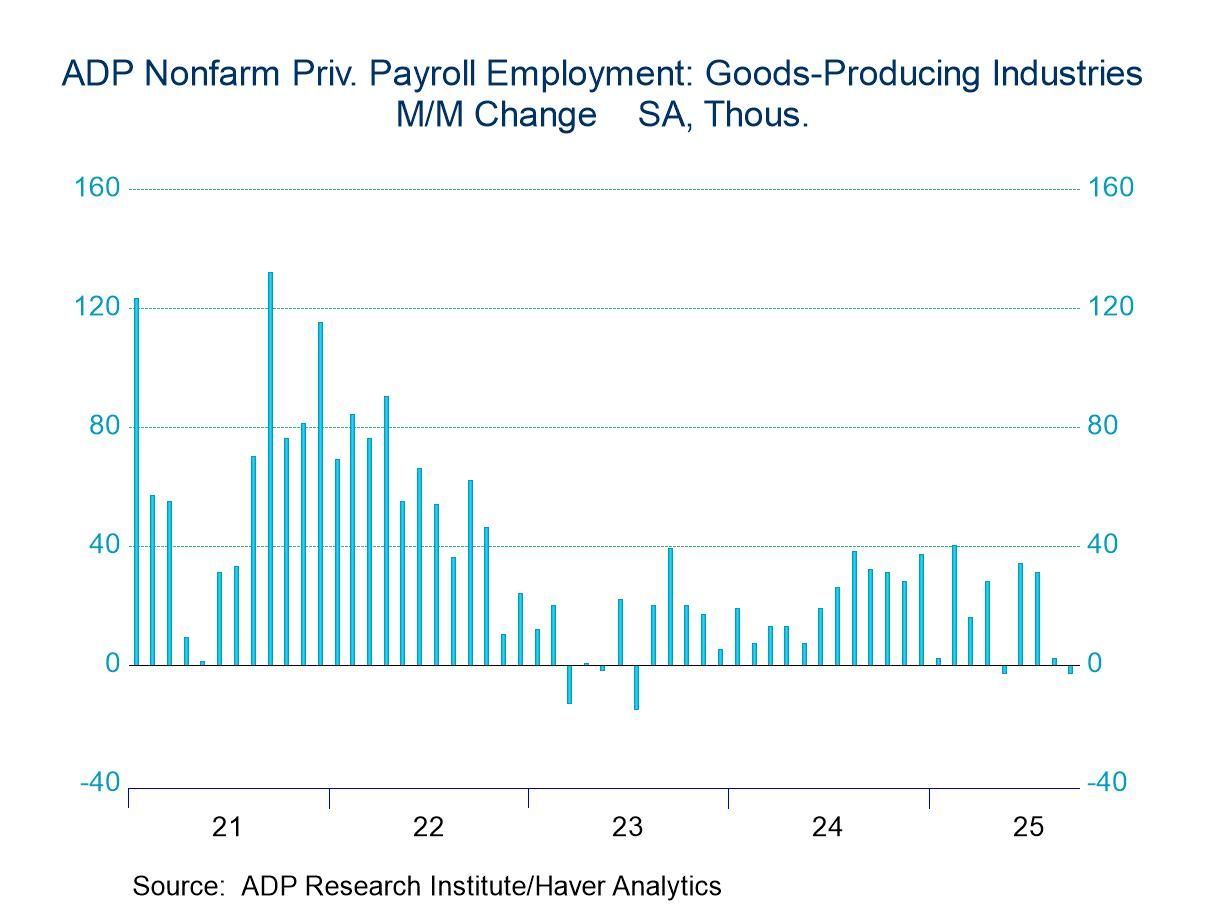
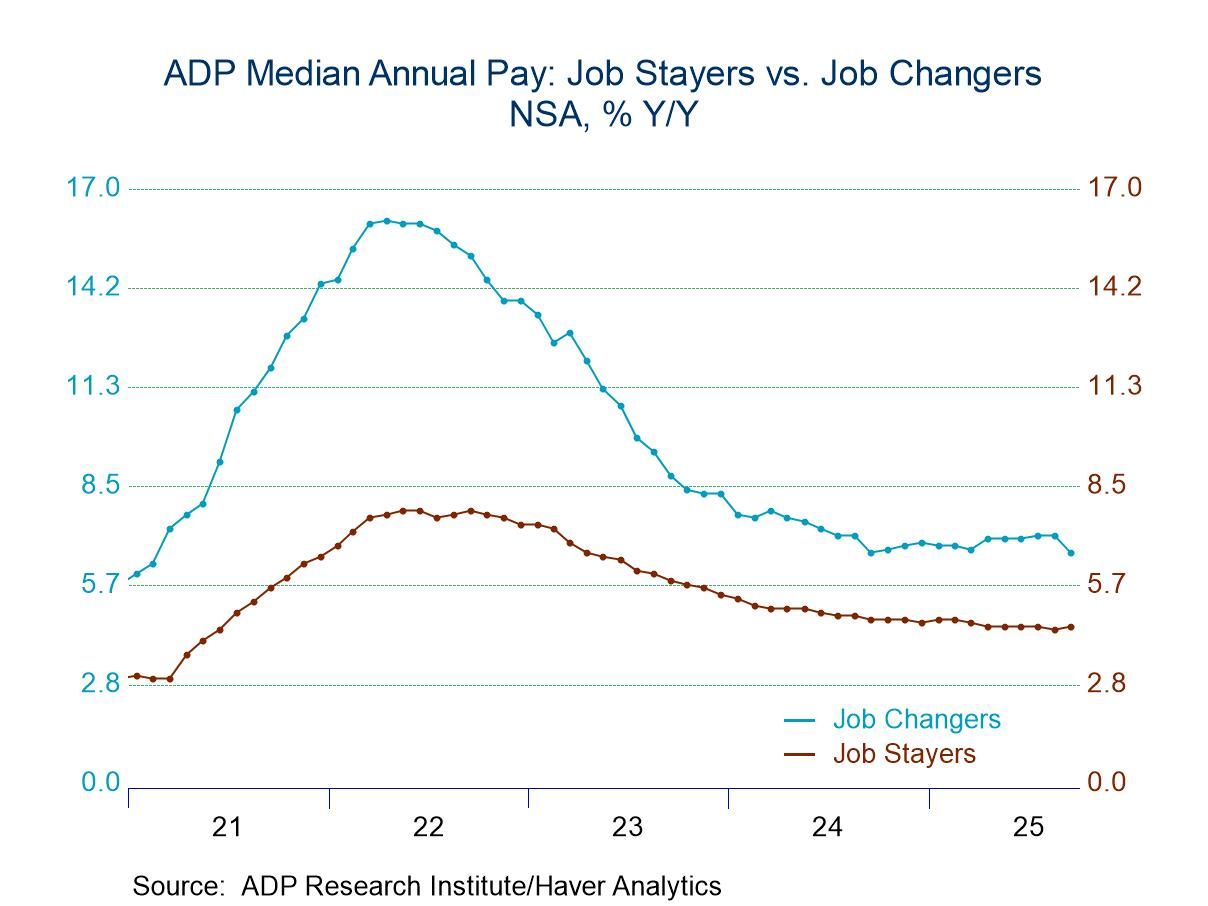
Tom Moeller
AuthorMore in Author Profile »Prior to joining Haver Analytics in 2000, Mr. Moeller worked as the Economist at Chancellor Capital Management from 1985 to 1999. There, he developed comprehensive economic forecasts and interpreted economic data for equity and fixed income portfolio managers. Also at Chancellor, Mr. Moeller worked as an equity analyst and was responsible for researching and rating companies in the economically sensitive automobile and housing industries for investment in Chancellor’s equity portfolio. Prior to joining Chancellor, Mr. Moeller was an Economist at Citibank from 1979 to 1984. He also analyzed pricing behavior in the metals industry for the Council on Wage and Price Stability in Washington, D.C. In 1999, Mr. Moeller received the award for most accurate forecast from the Forecasters' Club of New York. From 1990 to 1992 he was President of the New York Association for Business Economists. Mr. Moeller earned an M.B.A. in Finance from Fordham University, where he graduated in 1987. He holds a Bachelor of Arts in Economics from George Washington University.



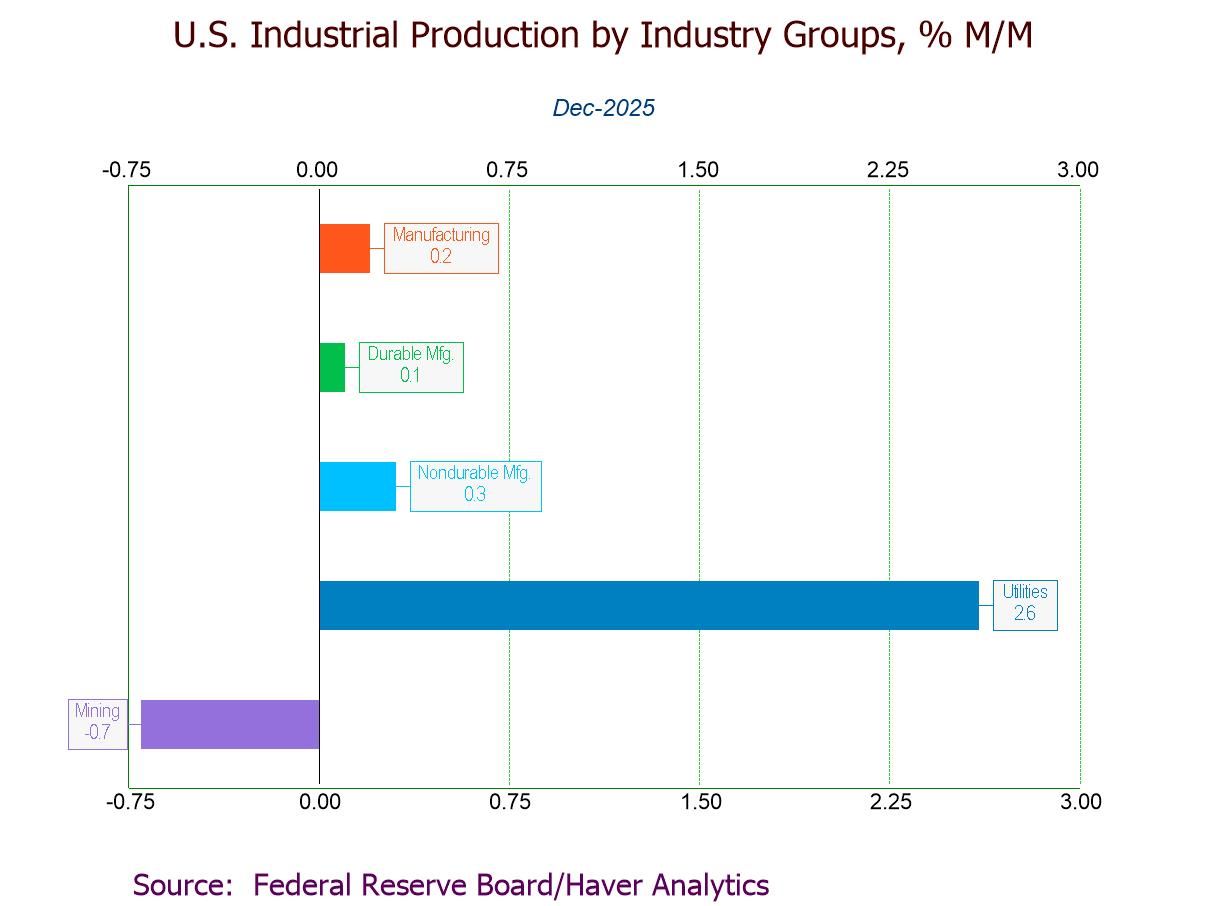
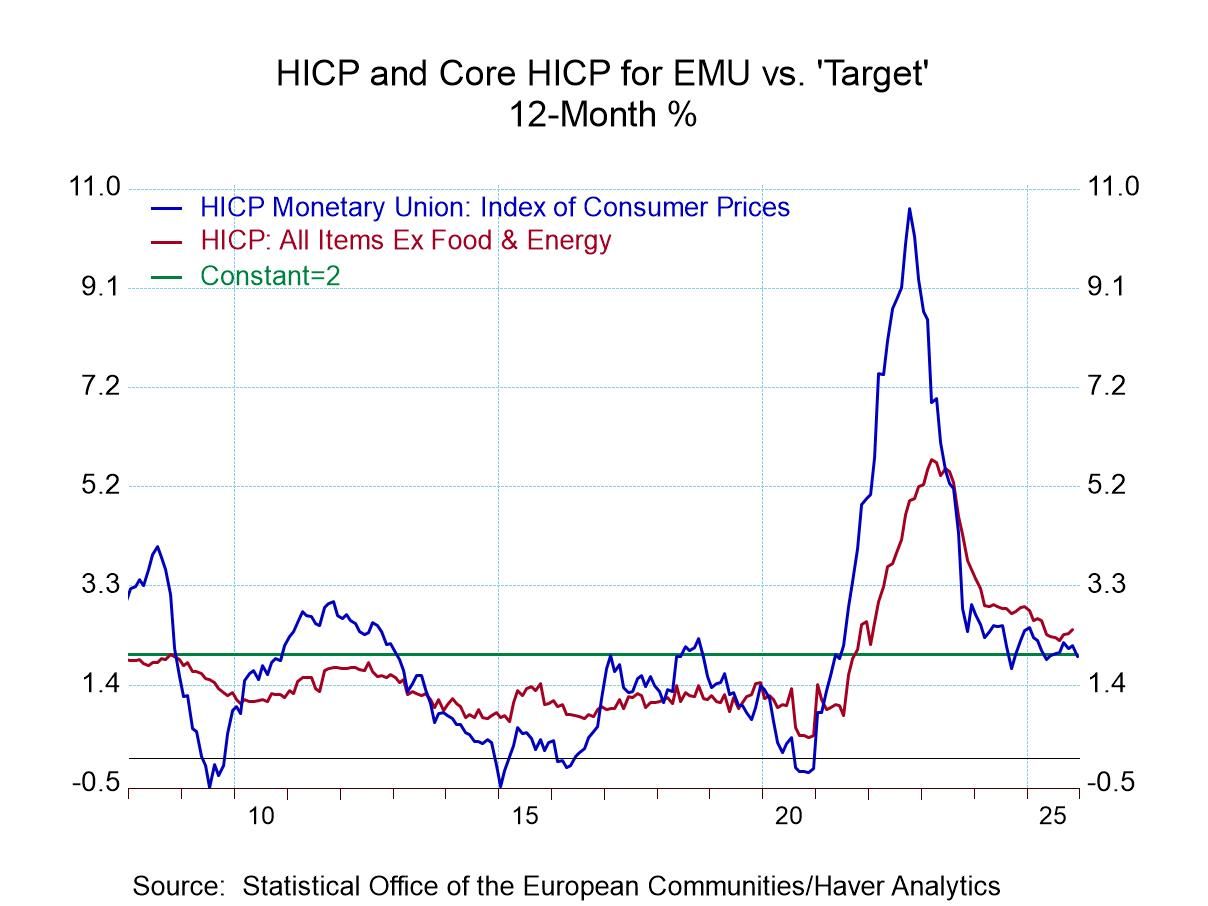
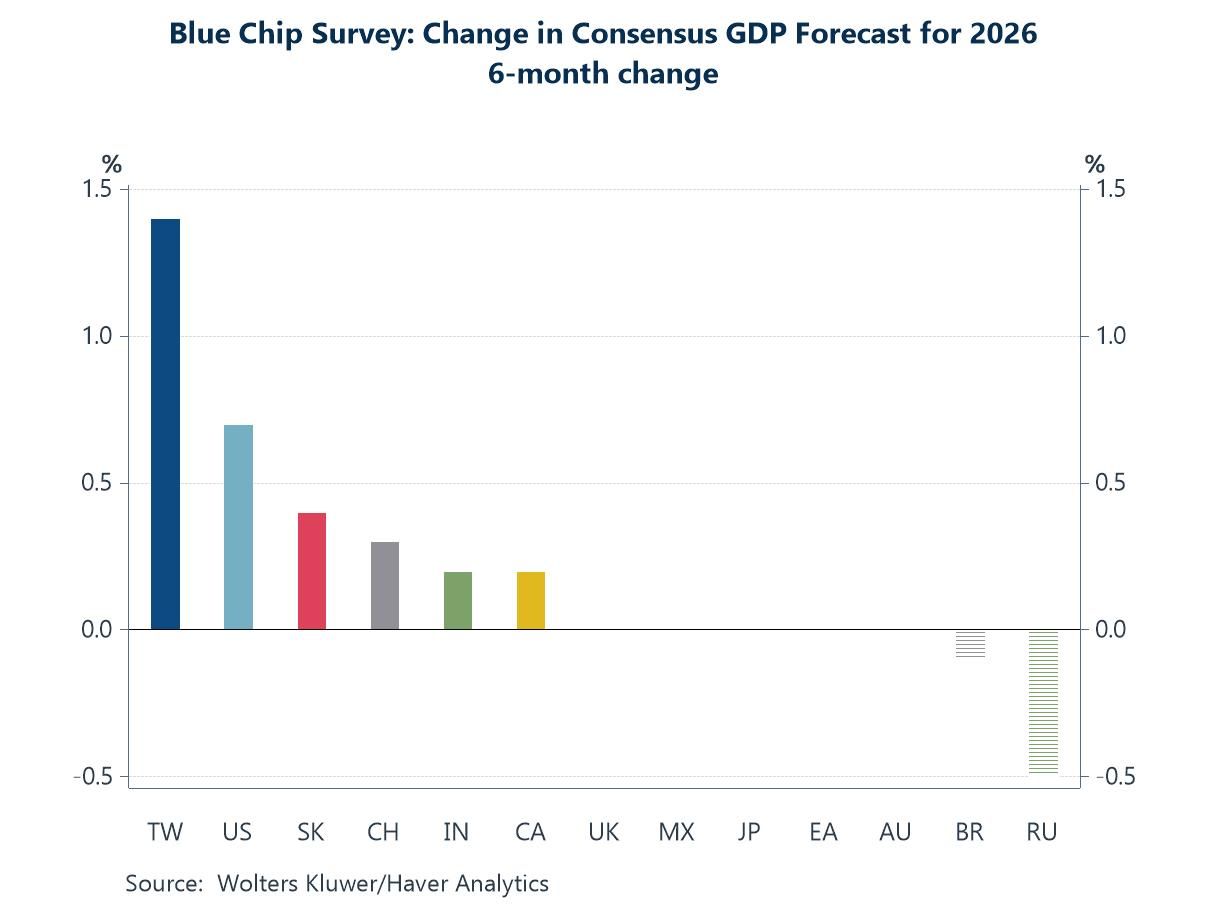
 Global
Global